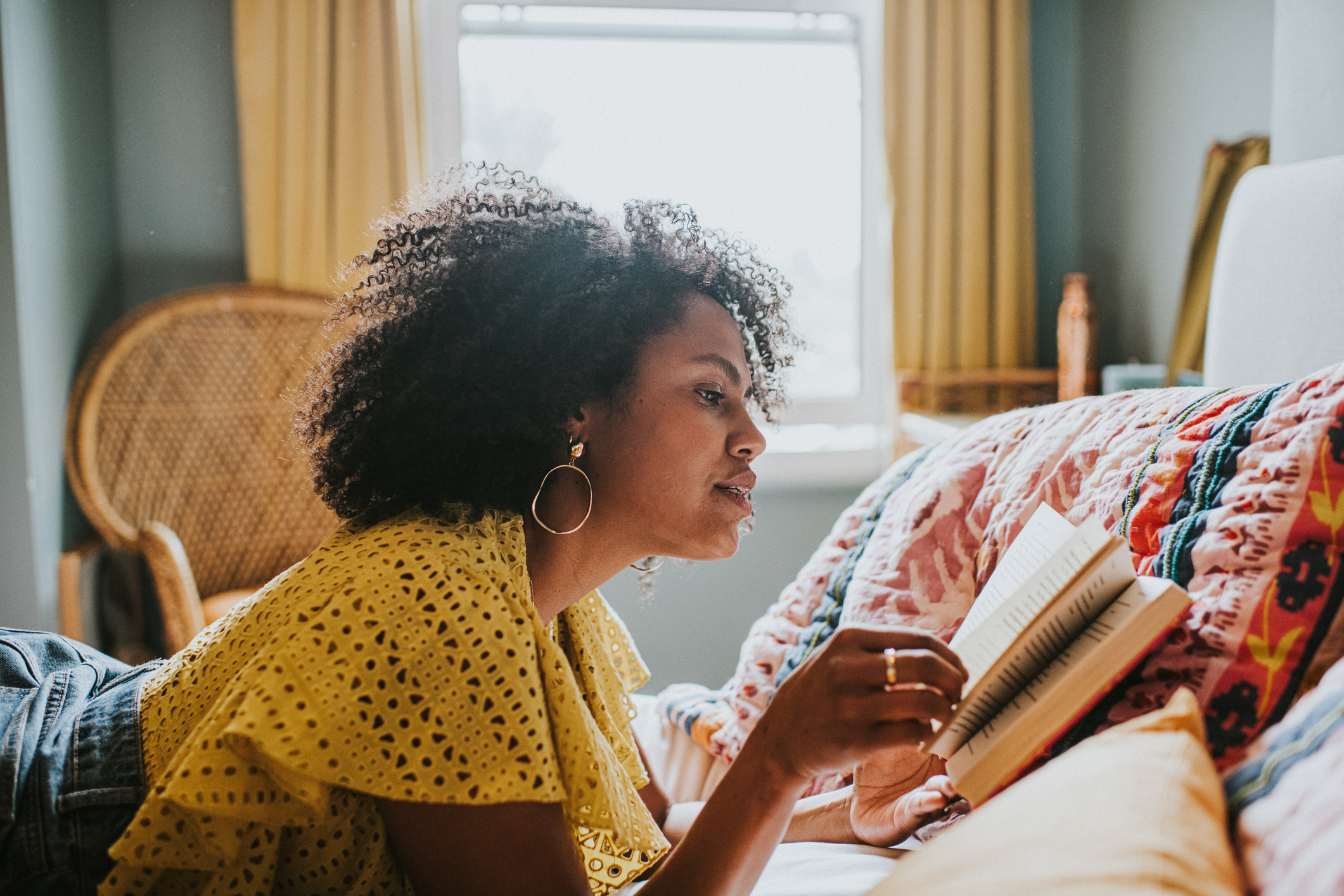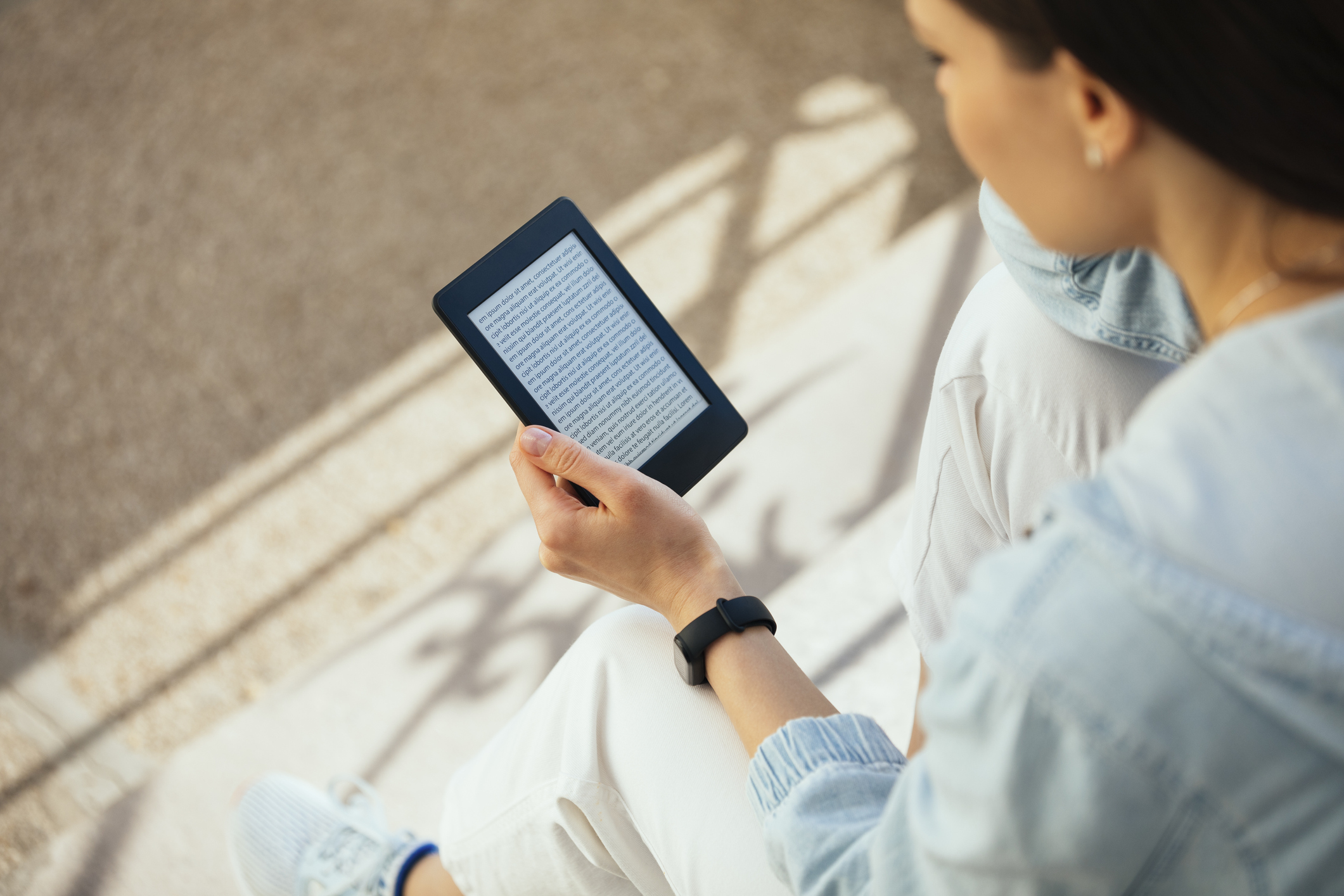Physical Books vs Digital Books
As an avid reader, I compare whether physical or digital books can save you the most money.

Layla Al-Ani

With the rise of technology, the book market is changing along with how we choose to read.
Here’s an interesting fact for you: on average, we spend £64 per year on books (2021). Clearly, we are still a nation of readers. But as with any purchase, we want to be sure that we’re making smart choices.
In the past decade or so, we’ve seen the remarkable rise of e-readers and digital books. There’s no doubt that the way we consume media is changing. This leads to an all-important question: which is better for our wallets—physical or digital books?
Readers in today’s world are well-versed in making discerning shopping decisions, especially with our ultimate guide on buying books on a budget. They consider all aspects of what engages them with a book and motivates them to keep reading. So, whether you’re looking for ways to make sure you achieve that Goodreads reading goal, or wondering about making that switch from physical to digital, we’ve put together this article to help you decide.
Comparison Table
Basis for Comparison | Ebooks | Physical Books |
|---|---|---|
Weight | Are usually lightweight (example: 2022 Kindle = 158g). | If over 400 pages, can be heavy and awkward to hold (example: 300 page book on average = 422g). |
Convenience | Can be accessed almost anywhere & downloaded onto phone. | Only when on person. Can be difficult to transport/commute with. |
Aesthetics | Lacks physical aesthetic aspects of a book - no detailed front cover, sprayed edge pages. | Aesthetic front covers/page edges. Can be used as home decor on bookshelves. |
Motivational | Kindle reading speed feature will measure your reading speed, which can be motivational. | The physical aspect of turning a new page and reaching chapters can be motivational. |
Price | No average price data. Ebooks are usually anywhere from 99p-£5.99. Occasionally, prices will be higher or lower. | Books can be costly. Average cost per book is £8.66 (2022). |
Samples | Yes. Before buying the book, Kindle allows you to read a small sample. | No. You would need to visit the book in-store to read the first few pages. |
Accessibility | Accessible features such as font size, spacing, and read-aloud. | You would need to buy a special edition or look out for bigger print books. |
Learning | Dictionary, search & note features. | No dictionary features. |
Sharing | Most e-readers only support one account. | Easy to give to a friend to share. |
Fragility | Would need to purchase a Kindle cover/case - extra cost. | Can be difficult to keep in excellent condition over time. |
Storage | Can store hundreds of books, and takes up little space. | Takes up a lot of room in your home. |
Physical Books

Did you know that 65% of us globally prefer paperbacks to ebooks? The main reason given in a recent study was the time away from our screens after work to decompress. Some people also prefer the motivational turning of a page and even the nostalgic smell of a book.
And who doesn’t love a good aesthetically pleasing bookshelf? With the rise of ebooks, publishers have focused on producing the most attractive book possible in recent years. This can include limited edition covers, sprayed-edge pages, and exclusive bonus chapter editions. Paperback books can also be an easy way to add a cosy feel to your home décor, by keeping all your favourites in one place.
However, with an average price of £8.66 paperback books are typically more pricey than Kindle or digital books. As a paperback fan myself, it’s rare these days to find one under £4.50 unless you go to a charity shop. With that said, if like me, you do prefer physical books, you can always shop with one of our book retailer discount codes from The Works, Waterstones, or WH Smith, and make sure to check out our other article dedicated to buying books on a budget.
E-books or Digital?

Certainly, Ebooks and Kindles have become wildly popular in the past decade for their convenience. Unlike paperbacks, they allow you to download hundreds of books to one device. You can also access them on the go, making them perfect for commuting to work.
Even better, an ebook reader usually has accessibility features, notes, and dictionary functions. Whether you want a bigger font size or you’ve stumbled on a word you don’t know, this can be really useful.
We all love a good deal. With an ebook reader, you can shop the same novels as a paperbook usually for a fraction of the price. Some readers even have specific programs where you can download free books, like Kindle Unlimited. Of course, you can also check the 99p deals section for a smart way to shop and discover debut authors.
The main drawback with an ebook reader is the upfront cost. With the bestselling Kindle costing £94, that’s a hefty initial cost. However, you might earn this money back over time by cutting down on paperback costs. It’s worth noting Amazon Kindles can range from £62-£522 currently. If you do prefer the accessibility, ease, and price of ebooks, then be sure to check our Amazon discount codes.
Consider Hidden Costs
Both of these options come with some hidden costs. It’s worth noting these if you’re considering purchasing an ebook reader or spending your money on a shiny new paperback.
With an ebook reader, it’s recommended to purchase a case for your device. This should help keep it in excellent condition and protected whilst you travel. These can typically cost anywhere from £10-£40. If you wish to sign up for a program such as Kindle Unlimited, this will cost £9.49 per month.
For paperback books, you will of course need somewhere to store them such as a bookcase or book shelf. If you haven’t got a bookcase already, these can generally cost anywhere from £40+. You will also have to pay for delivery costs unless purchasing a paperback from somewhere such as Amazon Prime or in-person.
Which will save me the most money?
Despite being a paperback lover myself, an ebook reader will likely save you the most money in the long run. The upfront cost can be offset by the savings you can make over years—or even decades—without buying paperbacks.
Overall, it does depend on personal preference. If you know you prefer turning a physical page, then an e-reader would probably gather dust despite your investment. Likewise, if you know your reading speed and motivation is best with ebook, then an e-book reader might be a well-suited purchase for you.

I’ve been the Health and Beauty Editor here at MyVoucherCodes since March 2022. I love writing, and I’ve been doing it since my second year of university back in 2019, and what I love to write about most is beauty, skincare, health, protein, and wellness. On top of my work for MyVoucherCodes, I have a lifestyle blog on social media.
In my spare time, I enjoy heading to the gym, watching Love Island, and spending some time with a good book. I also have a degree BA degree in Creative Writing and English Literature from Bath Spa University.
- Layla Al-AniHome & Garden Writer